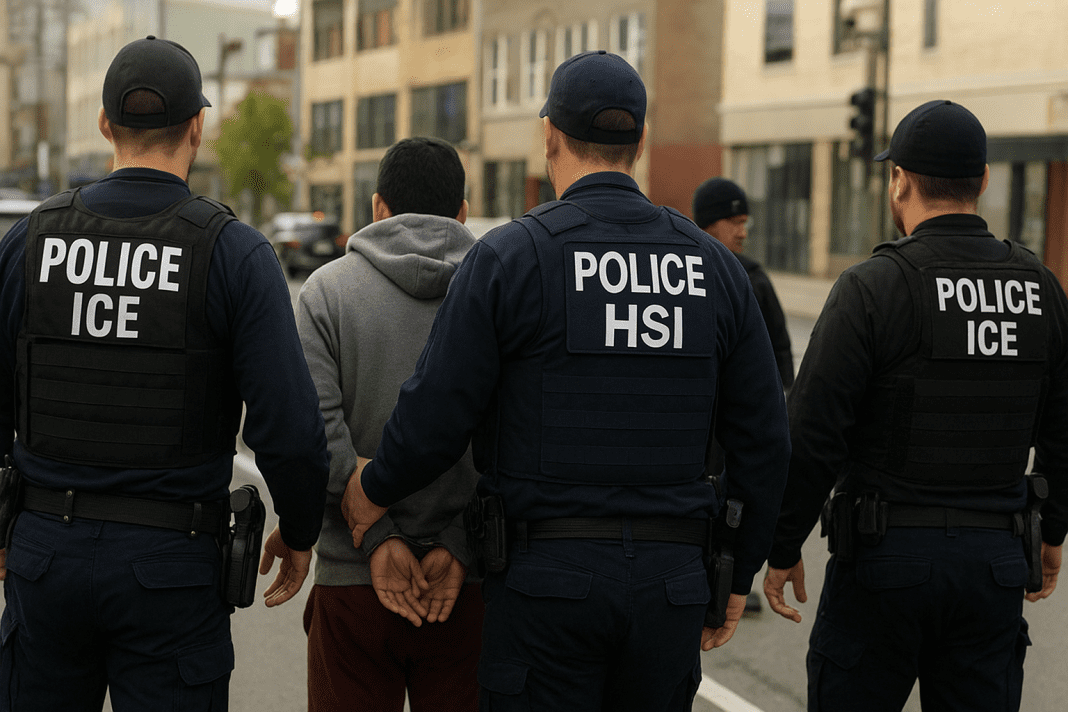Federal immigration officials carried out a large-scale operation in Chicago, targeting immigrants in the U.S. without legal status who have criminal records. A top U.S. Border Patrol official confirmed that his team made “many arrests” as part of the crackdown. The announcement comes amid intensified efforts by federal authorities in major U.S. cities.
Federal Authorities Step Up Operations in Chicago
The operation in Chicago marks a potential escalation in the Trump administration’s approach to immigration enforcement. Officials say the initiative focuses on immigrants with arrest records for serious offenses. These include assault, driving under the influence, and felony stalking. The U.S. Department of Homeland Security (DHS) confirmed the operation. DHS explained that it was necessary because local and state laws limit cooperation with federal immigration authorities.
The senior Border Patrol official posted videos on social media. The videos showed scenes of Chicago neighborhoods. They also included updates about the arrests. The posts emphasized the agency’s commitment to detaining individuals identified as criminal immigrants. Officials described the operation as targeted. They said it focuses on enforcing existing immigration laws in areas where local laws, sometimes called sanctuary laws, restrict the involvement of city and state agencies in immigration enforcement.
Trump administration moves to send federal officers to Chicago for immigration enforcement
Chicago Officials Criticize the Approach
The crackdown drew sharp criticism from Illinois state leaders who argued that the tactics were aggressive and disruptive. The Democratic Governor of Illinois described the operation as causing “challenges and mayhem on the ground,” pointing out concerns that the enforcement could affect many people who are not criminals.
Local leaders also raised concerns about the approach federal authorities used. They highlighted that federal agents detained individuals in ways that could appear discriminatory, targeting people based on their appearance, language, or accent. These concerns reflect previous legal challenges in other U.S. cities, where courts halted similar immigration enforcement efforts over fears of racial profiling.
Supreme Court lifts limits on Trump’s immigration raids, sparking outrage in California
Officials emphasized that federal agents in Chicago increased the resources and manpower dedicated to immigration enforcement. The senior Border Patrol official leading the operation previously oversaw similar campaigns in other major cities, where his team used aggressive tactics to identify and detain immigrants suspected of criminal activity. These earlier efforts included going into neighborhoods and public areas to locate potential immigration offenders.
Enforcement Focus and Federal Statements
DHS officials said the operation in Chicago and other parts of Illinois was carefully planned to prioritize public safety. They highlighted that those targeted in the crackdown were individuals with known criminal records, such as arrests for violent crimes, DUI offenses, and felony-level stalking.
Federal authorities reiterated that the goal of the operation was to enforce immigration laws and remove individuals who pose a risk to public safety. The officials also noted that the initiative was not meant to target communities at large but was focused on specific offenders.
Judge allows ICE to continue immigration courthouse arrests in New York City
The operation has received significant attention due to the high-profile nature of the enforcement actions. Videos shared online by the Border Patrol included updates on the number of arrests. They also showed scenes from the city. This reflects a more visible approach to immigration enforcement. DHS leaders overseeing the operation remained tight-lipped about further actions. They stated only that efforts were underway to identify and detain criminal offenders within the legal scope of federal immigration law.
The enforcement actions in Chicago follow a broader national effort by federal authorities. These efforts aim to strengthen immigration law enforcement in cities where cooperation with local police is limited. By focusing on immigrants with criminal records, federal agencies say they aim to balance legal enforcement with public safety priorities. Local officials continue to question the methods and their potential impact on communities.

